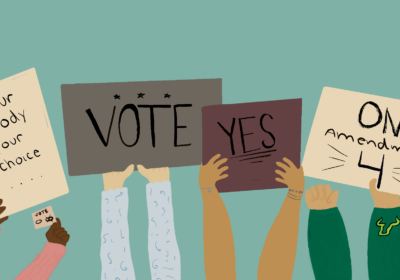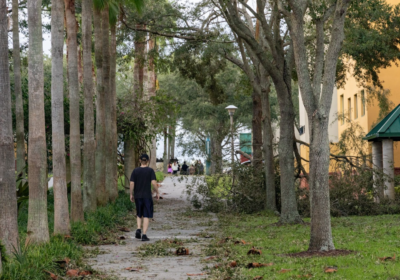EDITORIAL: USF fights for students

USF uses data analysis to help struggling students continue on the path toward graduation. ORACLE PHOTO/JACKIE BENITEZ
USF is taking a stand to help its students, and other colleges should follow its lead.
USF has recently begun using data analysis to pinpoint at-risk students in an attempt to get them help before they fail or drop out of college. Though its reasons behind the intervention may have more to do with money and prestige than a genuine desire to help, the results are inarguably positive.
The university’s graduation rate has steadily climbed over the past five years and data companies are playing a key role in reshaping the very environment of college.
USF partnered with Civitas Learning Software for $286,000 a year, according to the Tampa Bay Times. This partnership took big data and ran it through an analysis that highlighted at-risk students.
If a student begins to turn in assignments late, suddenly begins to have low exam scores or stops engaging on discussion posts, the university is alerted that student may have a problem. It also monitors classes that are strong graduation predictors. If a student is struggling, they are highlighted.
USF then sends someone close to the student, either a resident assistant, a professor or an advisor to check in.
The student realizes they aren’t alone. And if they share their issue or their worries with the person sent to them, they can be offered the help they need. Whether that be tutoring, financial assistance or even counseling.
Students have extremely high expectations on them from society, friends, family and even their peers. When they struggle, they often feel they can’t reach out to anyone without feeling like a failure.
So they simply trudge on. Unfortunately, without help, they are unable to conquer whatever hurdle or obstacle is in their path. So they leave.
USF needs students to graduate. Graduation rates impact funding, and if the university can meet the bar set by Florida Lawmakers, it can potentially get millions in bonus funds, which will allow for the hiring of more faculty. In turn, more students can be better served, helped and taught by the brightest minds in their respective fields.
Yes, there are concerns that too much data analysis is a breach of privacy for a student. And yes, if a student knows his or her struggle in one class predicts they will fail in others, it may cause them to despair and quit without trying.
If USF begins to steer those struggling into different tracks to boost graduation rate, there will be a major problem.
But as long as USF continues to walk the fine line between helping and invading privacy, both the university and its students will benefit.
A higher graduation rate means more money to hire a larger and increasingly more qualified staff.
Continue the data analysis.
Students don’t need the gesture to be laced with authentic concern. They simply need the help that comes with it. By highlighting and reaching out to struggling students, more people graduate, which is all everyone ultimately wants.






